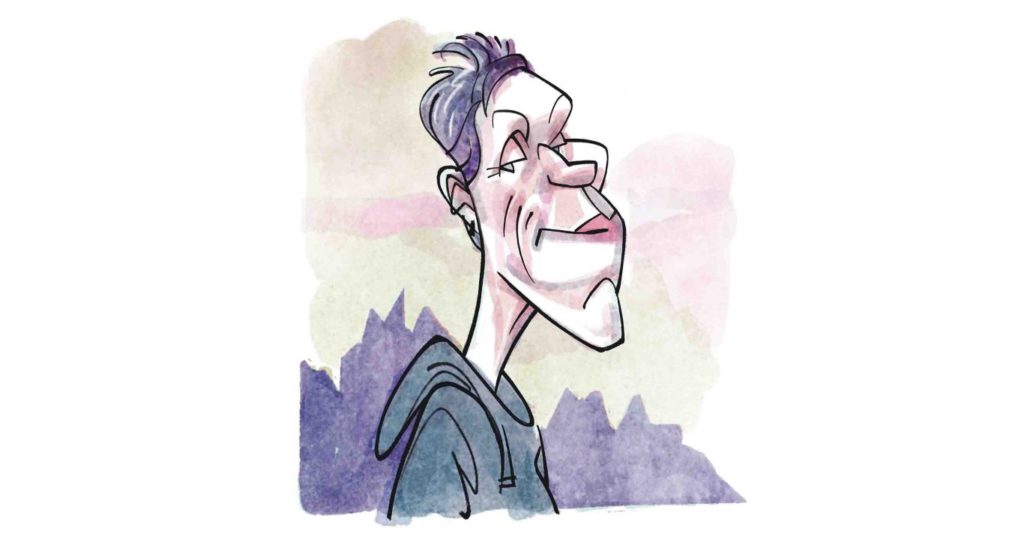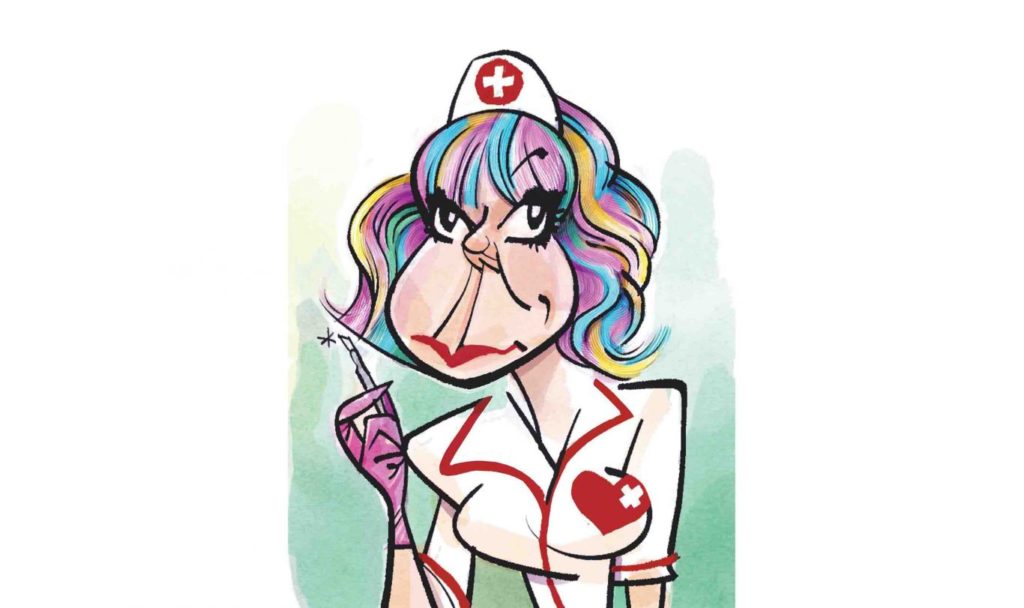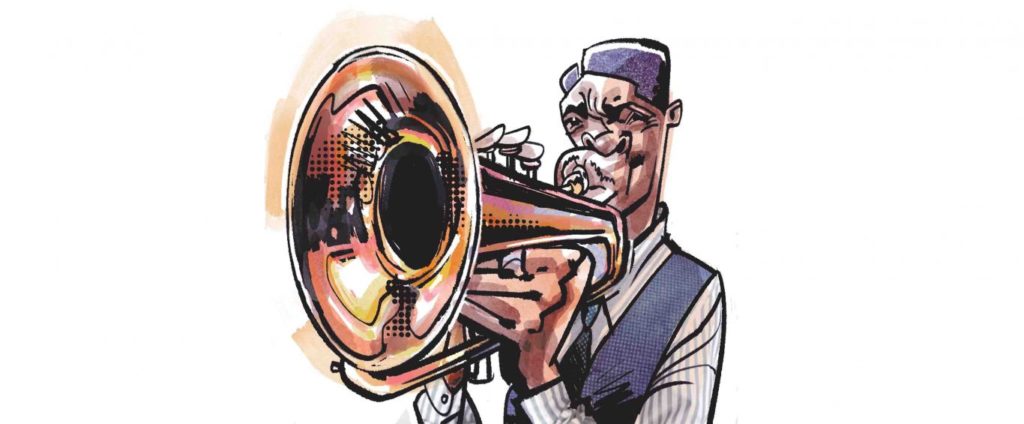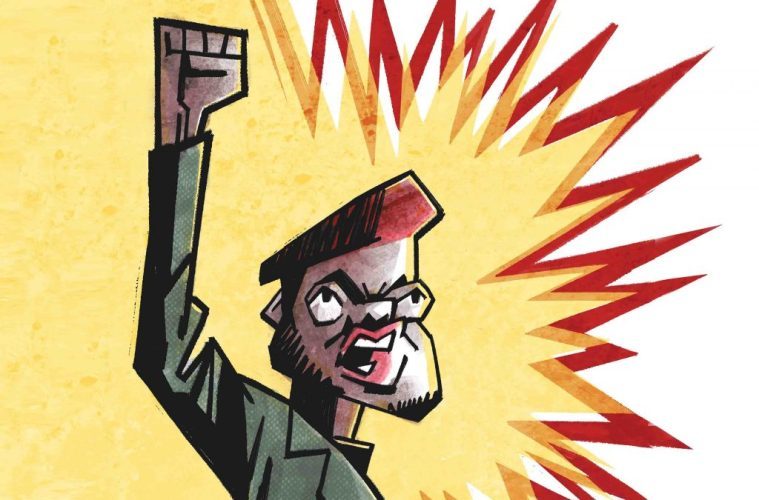Despite the fact that the industry was devastated and many major releases were bumped ahead to this year, 2020 ended up serving a rich and diverse crop of Oscar nominees. The films’ prevailing topics — institutionalized racism, protesters’ rights, sexual abuse, and the tanking economy — seem ripped from today’s headlines, with even the period pieces feeling as current as the Capitol attack on January 6. As we watched these films through links and on streaming services, our isolation was reflected in the dark cinematic scenarios, most nominations going to works about the art of valiantly fighting authority and oppression while barely getting by. Not long ago, Oscar voters had a bias against streaming services because they were cutting into the movie theater biz, but now it’s accepted that that’s the way the business has shifted. And besides, last year these services stepped in and saved our asses. The winners will be announced on April 25 in a scaled-down, televised ceremony that will provide a return to semi-normalcy in the form of boosting the industry while giving us the cathartic chance to watch big stars alternately squirm and rejoice.
Or you can skip all that and just read my predictions below.

(Illustration by Joaquín Aldeguer)
BEST PICTURE
The nominees are:
Minari
A Korean-American family starts a farm in Arkansas amidst various challenges, including the arrival of a very unorthodox granny. Based on writer-director Lee Isaac Chung’s childhood, this is a “movie-movie” about a family learning to communicate, and it’s enriching to watch.
Judas and the Black Messiah
A sort of reversal on The Black Klansman, Judas chronicles the time in the late 1960s when a Black man infiltrated the Black Panther Party with intent to harm one of its most influential leaders, Fred Hampton. The film is swirling and gritty, with a great sense of the period, though I didn’t find it consistently strong. It bears noting that between Judas, The United States vs. Billie Holiday, and Ma Rainey’s Black Bottom, 2020 spotlighted a lot of Black-on-Black crime/harassment, all of it instigated by whites.
Mank
A visually stimulating take on the iconography of the Citizen Kane era, Mank has the most nominations of any film this year (10), but the liberties it takes with the truth and its failure to enthrall the public have removed some gleam from the sled. (The lack of a Best Original Screenplay nomination is telling.) Also, Citizen Kane didn’t win Best Picture, so Mank winning would be bizarre—though Judy Garland never nabbed a competitive Oscar but Renee Zellweger got one for playing Judy, so anything goes in Oscar land.
Promising Young Woman
The ultimate #MeToo movie, this revenge fantasy plays out in ways that rivet and provoke. I’ve urged everyone I know to see it, and without looking up the plot, because your mind will reel.
Sound of Metal
A heavy metal drummer loses his hearing and battles his own best intentions when it comes to seeking help. A terrific surprise about the difficulty of reigning in adversity, done with the proper indie spirit.
The Father
Similarly, this play adaptation has Anthony Hopkins as a mature man suffering from dementia and replaying various scenes in his head with different outcomes. The best of the three dementia movies I saw, The Father scores mainly because of Hopkins’ heartbreaking attempts to make sense of everything.
The Trial of the Chicago 7
Aaron Sorkin’s look at 1960s activism and racism provides a crisp ensemble piece full of tasty turns. (And another Black Panther leader, Bobby Seale, is shown being taunted and victimized.) It could easily win Best Picture just for showing that some good people can also be accused of inciting a riot. But without a Best Director nomination, it seems adrift (even if Driving Miss Daisy and Argo proved otherwise).
The winner will be…
Nomadland
Virtually everyone can relate to this story about forced reinvention in the face of personal and economic loss. It’s a haunting work about a woman who loses everything and goes to live in her van, traveling amongst the evanescent nomad community. Nomadland pulses with gorgeous landscapes, music, Frances McDormand, David Straithairn, and real-life nomads, and though I felt it might be a little too oblique to win, Oscar has been going pretty arty lately, and it’s picked up a bunch of other key awards. Nomadland will find its home at the Oscar podium.

(Illustration by Joaquín Aldeguer)
BEST ACTRESS
The nominees are:
Frances McDormand, Nomadland
Always the anti-diva, McDormand gives a subtle, lived-in performance as a wanderer living in a van and in the moment. Giving this genius a third Best Actress Oscar would be utterly justifiable.
Vanessa Kirby, Pieces of a Woman
Kirby (The Crown) plays a married Boston lady who has a home birth and endures some hair-raising drama as a result. It’s edgy stuff, with Kirby pulling off a long and harrowing scene, leading to courtroom melodramatics that betray the theatrical roots of the material. (It was originally a play based on the filmmakers’ real-life experience). The movie’s prestige has only been damaged by the fact that the male lead is Shia La Beouf.
Viola Davis, Ma Rainey’s Black Bottom
Davis transforms herself into the feisty blues singer, and the Oscars love that kind of effort, though some might think, “Octavia Spencer could have just slid into it.”
Andra Day, The United States vs. Billie Holiday
I’m a Diana Ross fanatic, so I’m Team Lady Sings The Blues, but Golden Globe winner Day does a good vocal interpretation of Billie Holiday and gets to effectively mope around as everybody betrays her. (She’s afforded even less joy time than Ma Rainey.)
And the winner will be….
Carey Mulligan, Promising Young Woman
Mulligan immerses herself in the role of a woman obsessively determined to find justice, going for full-throttle, seething realness every step of the way. Her performance screams Oscar. If she loses, Mulligan won’t seek revenge, but voters’ consciences might.

(Illustration by Joaquín Aldeguer)
BEST ACTOR
The nominees are:
Anthony Hopkins, The Father
The Silence of the Lambs winner masterfully plays a man losing his grip, although I don’t feel he’ll be gripping another Oscar this time. It’s just not his year.
Gary Oldman, Mank
Oldman won for his Oscar-bait role of Winston Churchill in Darkest Hour, and he does well as Herman Mankiewicz, especially in his Oscar-bait scene of drunkenly haranguing all the biggies at a banquet table. He’s about 20 years older than Mankiewicz would have been at that moment, but again, Mank is not a documentary.
Steven Yeun, Minari
The heart and soul of the film, Yeun—the first Asian-American nominated for Best Actor—ably plays a man juggling family, risks, and even disaster, though his performance is more admirable than astounding.
Riz Ahmed, Sound of Metal
In his breakthrough film role as a musician who takes a stab at getting his hearing back, Ahmed is broodingly effective and would be sort of the Rami Malek of 2020, except for the competition.
The winner will be….
Chadwick Boseman, Ma Rainey’s Black Bottom
As an ambitious musician who’s about to get ripped off by white people, the late Boseman is radioactively good, and it’s not his fault that his big monologue is set up as His Big Monologue. This is a chance for Oscar to honor Boseman for the first and last time.

(Illustration by Joaquín Aldeguer)
BEST SUPPORTING ACTRESS
The nominees are:
Glenn Close, Hillbilly Elegy
Glenn will get stiff competition from Vicki Lawrence in Mama’s Family. Kidding—Vicki was ridiculously snubbed! But I’m still predicting that poor Glenn will have to sit there and lose for the eighth time, though by that point she might have at least picked up a Golden Razzie. (She is one of only three actors in history who’ve been nominated for both awards for the same performance. Talk about dividing people!)
Olivia Colman, The Father
Colman won Best Actress for 2018’s The Favourite, but her role here is mainly to look concerned a lot about daddy’s dementia.
Amanda Seyfried, Mank
As starlet Marian Davies, Seyfried brings a kind of benevolent glow to old Hollywood. Seyfried fits the pretty youngish thing with talent that this category often favors, though Mank never gave her a big Oscar scene.
Maria Bakalova, Borat Subsequent Moviefilm
Playing Sacha Baron Cohen’s endlessly naïve daughter in a film that hilariously uncovers the hate at the heart of the heartland, Bakalova is wildly game and deserves prizes simply for setting up Rudy Giuliani for one more humiliation. This is not your usual
Oscar-type performance a la Peggy Ashcroft in A Passage To India, but hey, times have changed.
But the winner will be:
Youn Yuh-Jung, Minari
“The Meryl Streep of South Korea,” Yuh-Jung is great as the offbeat granny who doesn’t mind her grandson’s mean stunts—and she also gets to indulge in some pathos, which always helps in the voting. Further aiding her chances, the Oscars feel guilty about not even nominating Zhao Shu-zhen, who played Awkwafina’s wacky but loving grandma in The Farewell. Or maybe I’m overthinking things.
BEST SUPPORTING ACTOR
The nominees are:
Paul Raci, Sound of Metal
Raci plays a guy who runs a camp for the hearing impaired, where they don’t treat deafness as a disability, they simply work on how to mentally move forward. His kind but direct characterization is a revelation.
Sacha Baron Cohen, The Trial of the Chicago 7
In this great ensemble, the real standouts are Mark Rylance as lawyer William Kuntsler, Frank Langella as a crotchety judge, Yahya Abdul-Mateen II as Bobby Seale, and Eddie Redmayne as buttoned-down activist Tom Hayden, but Cohen is sweeping all the awards attention because it was stunt casting, he’s high profile, and there’s goodwill stirred up by the Borat sequel. Fortunately, his performance as unyielding Yippie Abbie Hoffman is fine.
Leslie Odom Jr., One Night In Miami
The Tony winner for Hamilton eases right into the role of singer Sam Cooke, who’s learned to work the system, though Malcolm X and others advise him to be way more radical about it. Odom’s flawless vocal recreations seal the deal.
Lakeith Stanfield, Judas and the Black Messiah
LaKeith is quite good as the FBI informant who infiltrates the Black Panthers while wrestling with his conscience.
The winner is going to be:
Daniel Kaluuya, Judas and the Black Messiah
Having two nominees from the same movie wasn’t a problem just three years ago, when Three Billboards Outside Ebbing, Missouri’s Sam Rockwell prevailed over the same film’s Woody Harrelson. In the case of Kaluuya, he was nominated for Best Actor for 2017’s thriller/comedy Get Out, and now, as Fred Hampton, he has a fiery, anti-police speech that is award-worthy in itself. He got the Golden Globe and looks set to nab the Oscar, too.
BEST DIRECTOR
The winner:
Chloe Zhao, Nomadland. The movie exudes directorial vision in its calm, humane portrait of wanderers who’ve been betrayed by the American dream but don’t gripe about it much. Zhao will be the second female Best Director winner, the first being Kathryn Bigelow for 2008’s Hurt Locker. And if Emerald Fennell wins for Promising Young Woman, it’s the same deal!
BEST SONG
Who cares? See you on April 25th. ❖
Advertising disclosure: We may receive compensation for some of the links in our stories. Thank you for supporting Irvine Weekly and our advertisers.

